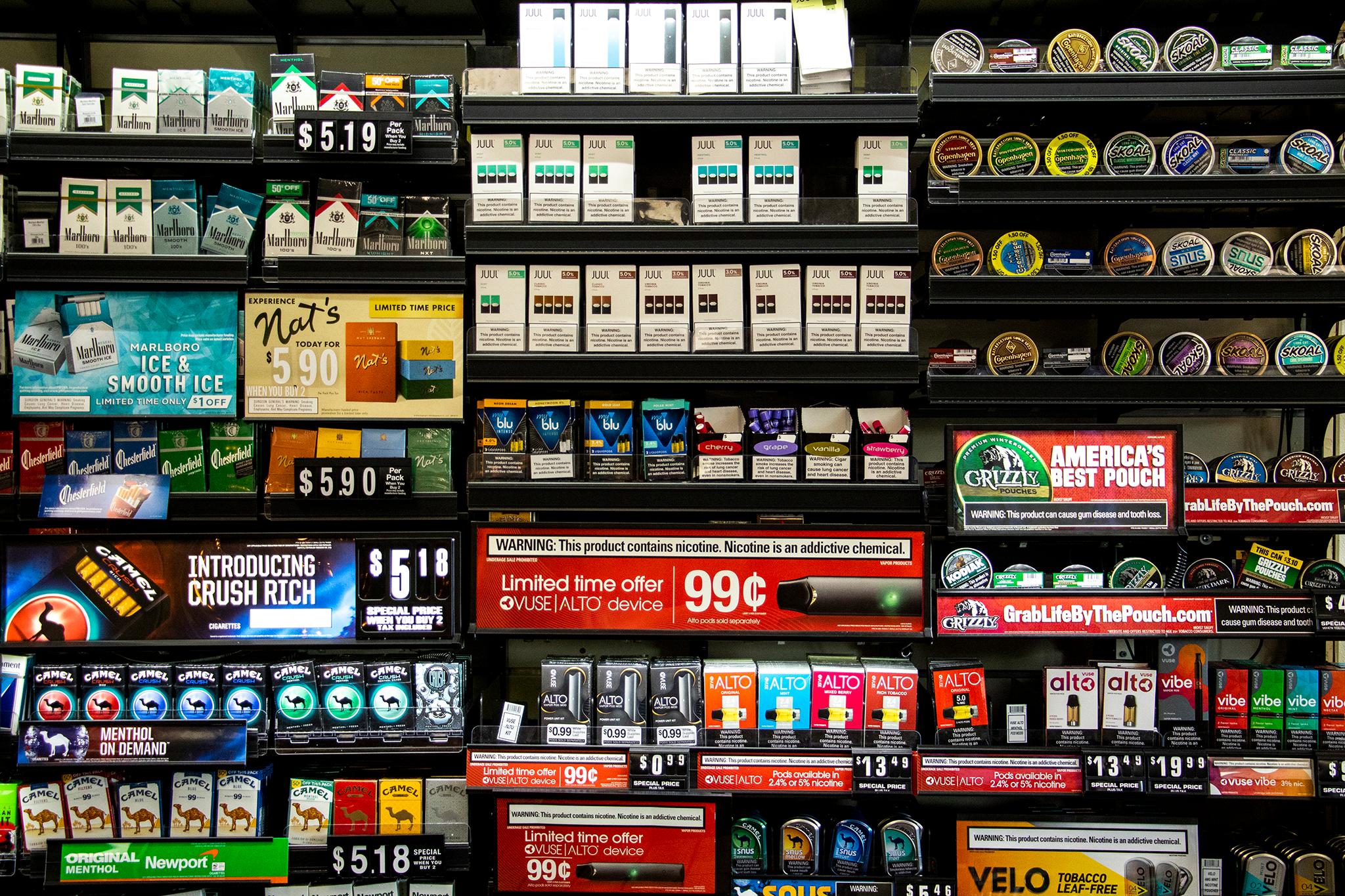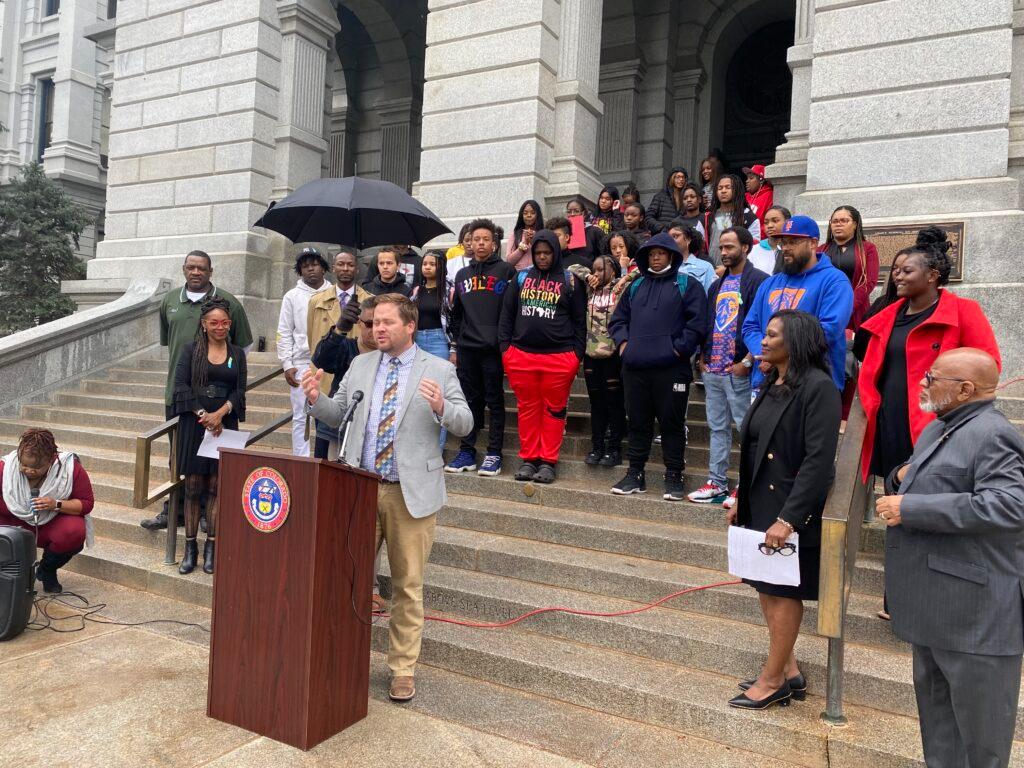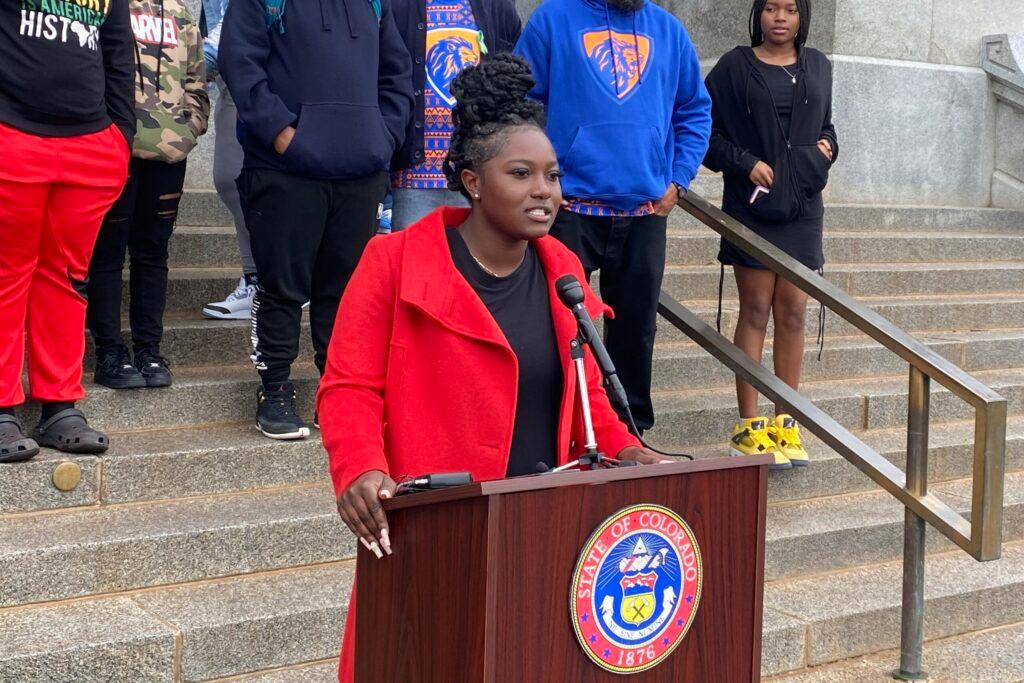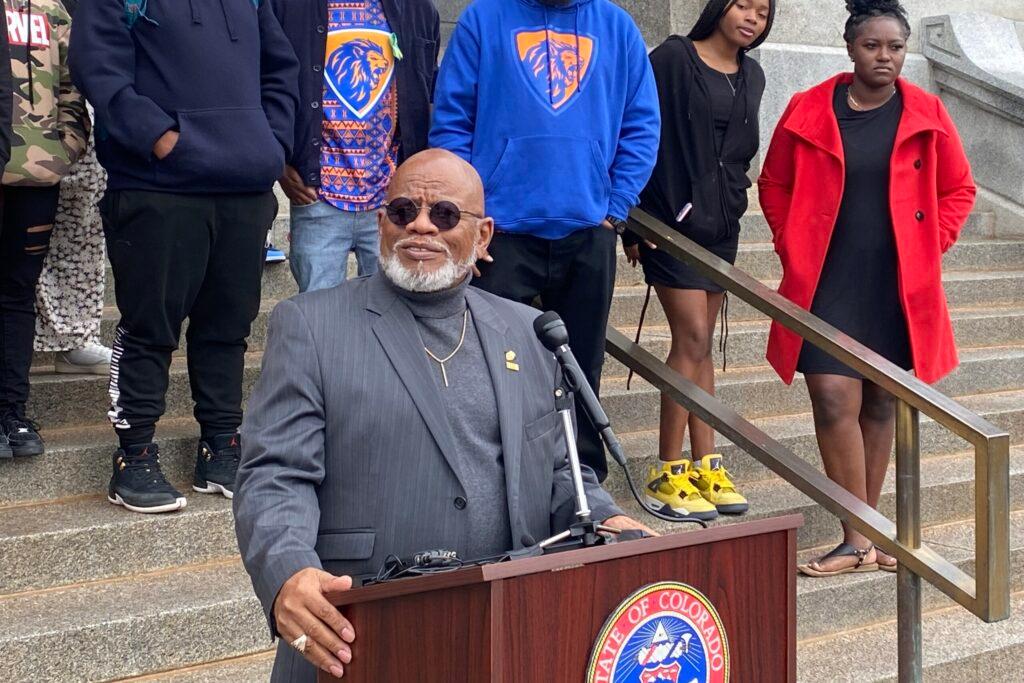
Lawmakers in Colorado's House passed one of the session’s most hotly debated bills — a ban on flavored tobacco products — this week. But the clock is ticking, and more than 220 bills await passage.
The bill now goes to the state Senate. Even with the session end looming, one of its co-sponsors, state Sen. Rhonda Fields said she was optimistic.
“You know, it looks great. It's on its way to the Senate, and then we'll make sure it goes through all the appropriate committees and I'm looking forward to debating it,” said Fields, a Democrat from Aurora.
Opponents say a ban would hurt convenience stores and vape shops and have argued the issue is one of personal choice.
For Fields, she said it’s about the toll tobacco consumption, driven by attractive flavors like menthol, has taken on the community.
“It started back in the ’60s, (the brand) Kool Cigarettes, all these menthol flavors,” she said. “The industry has now put flavors into vaping, into cigarettes to make it more attractive for young people to start smoking early.”
The tobacco industry has denied deliberately targeting communities of color, but the industry’s own documents show companies developed sophisticated campaigns to addict Black consumers.
Last month, the FDA proposed new rules to prohibit menthol cigarettes and flavored cigars in what it said was a push to “prevent youth initiation, significantly reduce tobacco-related disease and death.” The change would not impact flavored vaping products.

A bill up against a ticking clock and more than 140 lobbyists
The Democratic majority in the House passed the flavored tobacco ban bill 35-27 on Wednesday after the appropriations committee approved it earlier in the day on a 7-4 vote.
How did the bill manage to progress despite a ticking clock to the session’s end?
“We've stayed on message. This is about kids’ health — we see way too many kids using these products,” said another co-sponsor, Rep. Kyle Mullica, a Democrat from Northglenn. “We have the data backing us up. We have the science backing us up and we never stopped talking about that.”
Mullica said the bill has survived despite heavy lobbying — it’s the third-most lobbied bill this session, according to an analysis by the Colorado Sun, involving more than 140 lobbyists representing nearly 90 clients on both sides.
“I think that that's amazing that we didn't let big tobacco, and their well-funded industry, be able to beat this back,” he said.
The measure, HB22-1064, bans retailers of cigarettes, tobacco or nicotine products from selling or marketing any flavored product. Those are defined as products “imparting a taste or smell other than the taste or smell of tobacco.”
Menthols are a critical element of the ban, but the legislation also would cover newer products, like the fruit- and candy-flavored vape products that are attracting a new generation of users.

Black and Latino advocates rallied in support of the bill
Supporters of the measure gathered on the west steps of the state Capitol after House lawmakers approved the bill on a largely party-line vote.
“When we fight, we win! When we fight, we win!” they chanted.
Nyla Pollard, a senior and member of the Black Student Union at Aurora's Smoky Hill High School, said she sees a lot of vaping in her school, especially in the bathrooms and classrooms. The vaping products are “very easy to hide and teachers don't know,” she said, adding that teens consider vaping as less damaging and better than cigarettes.
“I see lots of my friends, not knowing they're addicted or saying they'll stop and there's no harm, but they can't stop because they're addicted,” she said.
Other speakers echoed those concerns and raised others, about the long-term health impacts of flavored tobacco and nicotine use.
A report issued by a coalition of health and civil rights groups last year, called Stopping Menthol, Saving Lives, explained that "in the 1950s, less than 10 percent of Black smokers used menthol cigarettes. Today, that number is 85 percent."
Sondra Young, the president of the Denver branch of the NAACP said the majority of Black women who smoke use menthol cigarettes.
"And there's a growing concern regarding mental health, maternal health, infant mortality. We simply cannot ignore these dangers,” she said.

“Addiction is real,” said Pastor Thomas Mayes of the Greater Metro Denver Ministerial Alliance. “Flavored tobacco is more addicting than just about anything on the market right now. And it's not just harming our generations coming. It's killing them, it's killing their minds. It's killing their desire to succeed.”
Regular use of vaping products by Colorado youth exceeds the nation’s, and heavily-Latino Pueblo’s rates are even higher, said Rudy Gonzales, executive director of Servicios de La Raza, He said a recent poll showed most Coloradans support banning flavors to address the issue.
“The situation in Pueblo is just one example in Colorado, but it is an important example for the Latino community, and the impact these flavored products are having on our children, in our neighborhoods,” he said.
The ban faces opposition from the governor and some legislators
The speakers urged the governor to sign the bill if lawmakers pass it.
The governor recently told CPR’s Colorado Matters he opposes the measure, calling banning flavored tobacco products a local issue. In December, Denver Mayor Michael Hancock vetoed a similar citywide measure, saying the issue should be handled at the state level.
The bill faced strong pushback in committee hearings, as well as on the House floor.
Republican House Minority Leader Hugh McKean attempted to create an exception for menthol.
“This is a product that's been on the market for a very long time. It's been on the market, has lots of adults that appreciate it, use it, want it to stick around,” he said.
That amendment failed.
The bill has been one of this session’s most contentious and lawmakers listened to many hours of impassioned testimony. On one side, there were frustrated moms and educators, doctors and public health folks.
On the other, concerned adults who say vaping products helped them quit, along with vape shop owners and employees, saying the products make up a considerable share of their revenues.
The business community is also concerned
Some warned if passed and signed by the governor, the bill would result in the closure of hundreds of small businesses.
“Make no mistake, that's exactly what this bill would do. Banning flavored nicotine doesn't magically make it go away,” testified James Howard, who said he was representing his two small vape shops and thousands of Coloradans. “All it does is shutter small businesses and create a black market that gives no regard to who its clients are.”
Vapor businesses provide 2,370 jobs in this state, 126 million a year in wages and over 366 million a year in annual economic impact to Colorado, Amanda Wheeler, president of the Rocky Mountain Smoke Free Alliance told lawmakers.
She said she’s a former smoker who used vaping products to quit traditional cigarettes, like millions of other Americans. Wheeler cited research showing flavored e-cigarettes are used by more than three-quarters of adults who currently vape.
“Here's what that means. Nicotine vaping is the single most effective smoking cessation method ever devised,” Wheeler said. “And the most appealing reason people are able to switch is because of the variety of flavors.”









